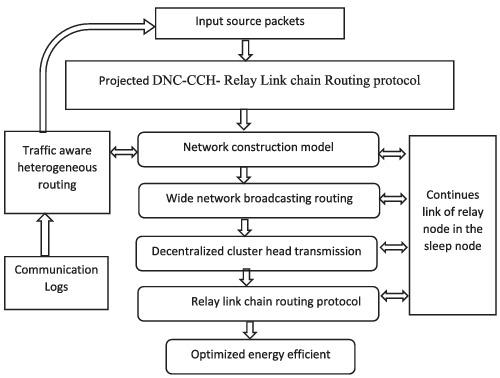当前位置:
X-MOL 学术
›
Int. J. Commun. Syst.
›
论文详情
Our official English website, www.x-mol.net, welcomes your feedback! (Note: you will need to create a separate account there.)
A fog computing data reduce level to enhance the cloud of things performance
International Journal of Communication Systems ( IF 2.1 ) Pub Date : 2021-04-10 , DOI: 10.1002/dac.4812 Tarek Moulahi 1, 2, 3 , Salim El Khediri 1, 3, 4 , Rehan Ullah Khan 1 , Salah Zidi 3, 5, 6
International Journal of Communication Systems ( IF 2.1 ) Pub Date : 2021-04-10 , DOI: 10.1002/dac.4812 Tarek Moulahi 1, 2, 3 , Salim El Khediri 1, 3, 4 , Rehan Ullah Khan 1 , Salah Zidi 3, 5, 6
Affiliation

|
Devices in the Internet of Things (IoT) generate and gather a vast amount of data. Smart devices with constrained resources cannot execute large data‐based machine learning (ML) algorithms. Therefore, in this paper, we propose, analyze, and evaluate data reduction at the Fog level. As a matter of fact, the focus of this paper is twofold: The first objective is to process the reduced datasets by ML, and the second aim is to segregate the irrelevant data and preserve the quality of the ML models. The naïve Bayesian classifier is used for model analysis. For data (attributes) reduction, the state‐of‐the‐art approaches of CF Subset Evaluation, Info Gain Evaluation, Gain Ratio Attribute Evaluation, and the principal component analysis (PCA) approaches are employed. From the implementation point of view, the naïve Bayesian classifier is used to learn the class distribution and the correlation of the classes with the rest of the features. The naïve Bayesian model is generated using the full dataset without feature reduction. Feature selection algorithms then reduce features by 50%. This reduced set is also used to generate the naïve Bayesian model, which gives us a benchmark for comparing the results with the original unreduced dataset. From the results, we find that the performance of the reduced set is either increased or is almost similar to the full set of features. With this comprehensive experimental evaluation, we believe that data reduction can provide a blueprint for avoiding unnecessary data storage and processing. The performance of the ML models is not drastically affected by feature reduction and hence demonstrates the efficacy of the reduced ML models.
中文翻译:

雾计算数据降低级别以增强物联网性能
物联网(IoT)中的设备会生成并收集大量数据。资源受限的智能设备无法执行基于大型数据的机器学习(ML)算法。因此,在本文中,我们提出,分析和评估Fog级的数据约简。实际上,本文的重点是双重的:第一个目标是通过ML处理精简数据集,第二个目标是分离无关数据并保持ML模型的质量。朴素的贝叶斯分类器用于模型分析。为了减少数据(属性),使用了最新的CF子集评估,信息增益评估,增益比率属性评估和主成分分析(PCA)方法。从实施的角度来看,朴素的贝叶斯分类器用于学习类分布以及类与其余特征的相关性。幼稚的贝叶斯模型是使用完整数据集生成的,而没有特征约简。然后,特征选择算法将特征减少50%。该缩减集还用于生成朴素的贝叶斯模型,该模型为我们提供了将结果与原始未归约数据集进行比较的基准。从结果中,我们发现精简集的性能要么提高,要么几乎与整个功能集相似。通过这项全面的实验评估,我们相信数据缩减可以为避免不必要的数据存储和处理提供一个蓝图。
更新日期:2021-05-04
中文翻译:

雾计算数据降低级别以增强物联网性能
物联网(IoT)中的设备会生成并收集大量数据。资源受限的智能设备无法执行基于大型数据的机器学习(ML)算法。因此,在本文中,我们提出,分析和评估Fog级的数据约简。实际上,本文的重点是双重的:第一个目标是通过ML处理精简数据集,第二个目标是分离无关数据并保持ML模型的质量。朴素的贝叶斯分类器用于模型分析。为了减少数据(属性),使用了最新的CF子集评估,信息增益评估,增益比率属性评估和主成分分析(PCA)方法。从实施的角度来看,朴素的贝叶斯分类器用于学习类分布以及类与其余特征的相关性。幼稚的贝叶斯模型是使用完整数据集生成的,而没有特征约简。然后,特征选择算法将特征减少50%。该缩减集还用于生成朴素的贝叶斯模型,该模型为我们提供了将结果与原始未归约数据集进行比较的基准。从结果中,我们发现精简集的性能要么提高,要么几乎与整个功能集相似。通过这项全面的实验评估,我们相信数据缩减可以为避免不必要的数据存储和处理提供一个蓝图。



























 京公网安备 11010802027423号
京公网安备 11010802027423号